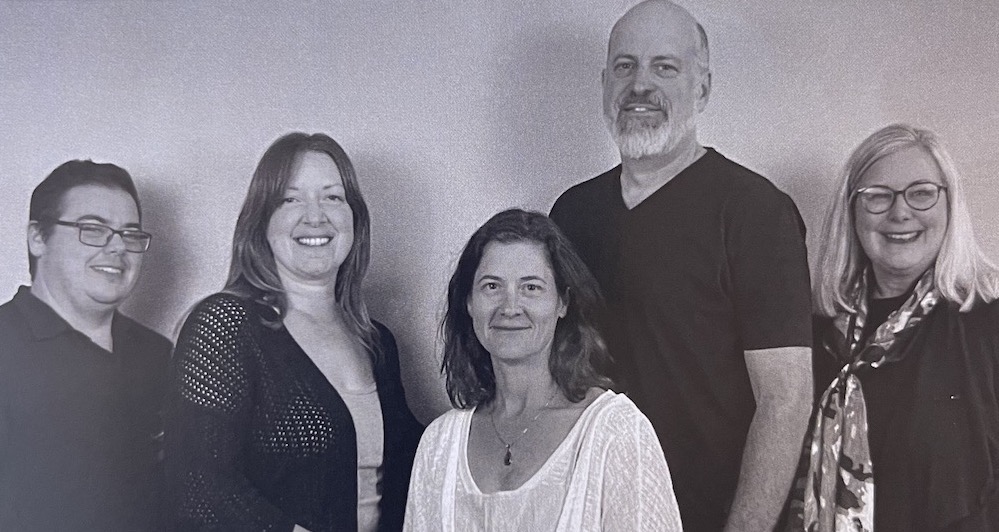This event was presented March 24-26, 2023.
So . . . Kodachrome, a play by Adam Szymkowicz presented as a staged reading at the Cambria Center for the Arts Theatre this weekend, is promoted as a look at love, loss, and hope “in living color.”
But director Katy Dore’s take on this study of romantic entanglements seems more black and white—more interested in exploring distinctions and even distance in the relationships that are the focus of this compact, thoughtful, one-and-a-half-hour (with intermission) examination of several couples in and out of love.
These partners and their stories are presented to the audience as a series of snapshots narrated by a photographer (an engaging Alicia Klein, who invokes our sympathy early in the evening with her lament that even as she helps people look at things, “I can’t stop time.”).
Our narrator, however, turns out to be a not-at-all-impartial chronicler. As the one behind the camera, who sees without herself being seen (for the most part), she is soon revealed to be as different from the people she describes as it’s possible to be.
A note on the production: Although Kodachrome is presented here as a “staged reading” (the actors are on script), they do move around a set with basic black benches and boxes, with uniformly white lighting and little color in the props used (hats, scarves, coffee cups, etc.).
The set and the costumes in particular contribute to the monochromatic feel of the production. The narrator is in white, the other actors—Abe Lincoln, Kate Kravets, Samvel Kristopher Gottlieb, and Beth Balyard—primarily in black as they play several different roles.
. . . the ‘living’ in living color is on display through the variety of characters that Lincoln, Kravets, Gottlieb, and Bolyard are called on to play.”
But monochromatic here doesn’t mean drab or dreary. While bright colors may be in short supply, the “living” in living color is on display through the variety of characters that Lincoln, Kravets, Gottlieb, and Bolyard are called on to play.
You can see Lincoln’s relief (as a husband with divorce on his mind) when the narrator says “a weight is lifted off his shoulders.” You can sense Kravets’ uncertainty (as a woman in love who doesn’t know how to proceed) when the narrator says “she’s been ‘tomorrowing’ for two years.” You can feel Gottlieb’s desire (as a young man proposing to his girlfriend) and Balyard’s anxiety (as the girlfriend who isn’t so sure about marriage) when the narrator says “he wants to love completely.”
The actors must portray the intricate nuances of what the narrator describes (even something like five emotions without a word said), and that’s a major strength of this production. Given only two weeks to rehearse with her cast, Dore has skillfully and sensitively guided her actors into giving us a varied, vivid, and “living” portrait of love, loss, and hope.
